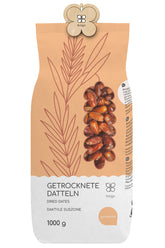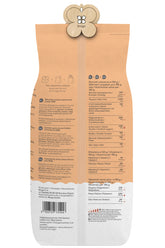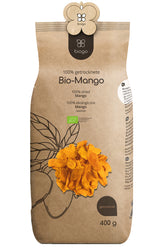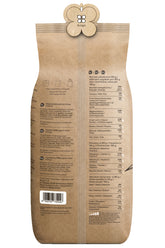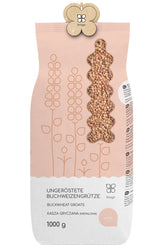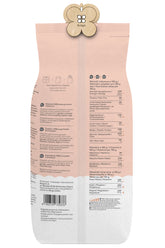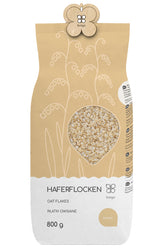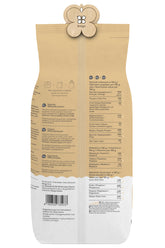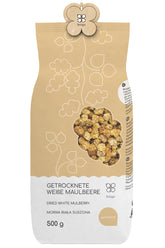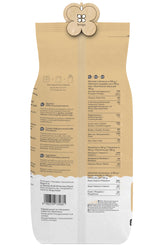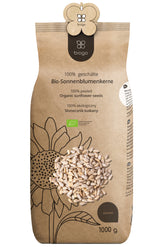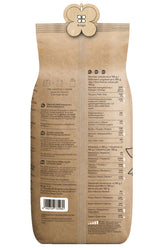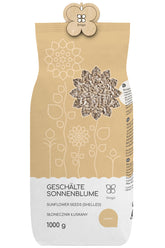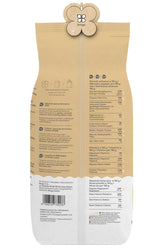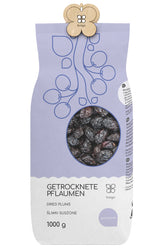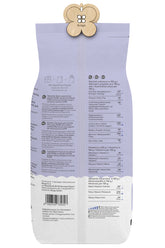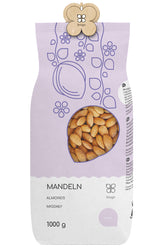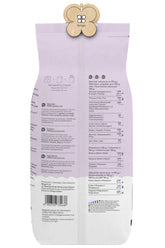Fats are an important component of our diet and fulfill many vital functions in the body. Unfortunately, many people still fear fats and try to avoid them as much as possible. However, not all fats are the same – there are indeed healthy fats that we should incorporate into our diet. In this blog post, you'll learn more about the importance of healthy fatty acids and which oils you can include in your daily cooking.
The importance of fats for our body
Fats are indispensable for our body. They serve as an energy source, are important for building cell membranes, and support the absorption of fat-soluble vitamins like A, D, E, and K. Additionally, fats play a crucial role in regulating inflammatory processes in the body.
However, there are significant differences between various types of fats. While saturated fatty acids like those from butter, cheese, or meat should be viewed critically as they may increase cholesterol levels, unsaturated fatty acids such as Omega-3 and Omega-6 are of great importance for our health.
Omega-3 and Omega-6 – the essential fatty acids
Omega-3 and omega-6 fatty acids are not produced by the body and must therefore be obtained through diet. They play a central role in regulating inflammatory processes, blood clotting, cholesterol balance, and brain function.
A balanced ratio between omega-3 and omega-6 is particularly important. In Western diets, this ratio is often out of balance, as we consume significantly more omega-6 fatty acids than omega-3. This can lead to inflammation and other health problems.
To counteract this imbalance, we should focus more on omega-3-rich foods. These include flaxseed oil, walnuts, chia seeds, and fatty sea fish like salmon, mackerel, or herring.
Cold-pressed oils – the vitamin bombs in the kitchen
In addition to essential fatty acids omega-3 and omega-6, many cold-pressed oils also contain a variety of valuable vitamins, minerals, and plant compounds. These so-called micronutrients support our health in numerous ways.
Particularly noteworthy are:
Flaxseed oil
Flaxseed oil is an excellent source of omega-3 fatty acids. It also contains plenty of vitamin E, magnesium, and potassium. Flaxseed oil is perfect for enhancing salads, smoothies, or muesli.
Coconut oil
Coconut oil consists mainly of saturated fatty acids, which affect the body differently than those from animal products. Coconut oil also has antibacterial and antiviral properties and can lower cholesterol levels. It's versatile in the kitchen, suitable for frying or baking.
Olive oil
Olive oil is rich in monounsaturated fatty acids, vitamin E, and plant compounds like polyphenols. It supports heart health and has anti-inflammatory effects. High-quality, cold-pressed olive oil should therefore be a staple in a balanced diet.
Healthy fats in daily cooking
To optimally benefit from healthy fats, it's important to regularly incorporate them into our diet. Here are a few tips on how to easily implement this:
- Use high-quality, cold-pressed oils like olive oil, coconut oil, or flaxseed oil for frying, baking, and enhancing dishes.
- Sprinkle flaxseeds, chia seeds, or chopped walnuts over salads, muesli, or yogurt.
- Opt for fatty sea fish like salmon, mackerel, or herring – ideally 1-2 times per week.
- Replace conventional bread spreads with avocado, nut butter, or hummus.
- Take omega-3 supplements if you can't meet your needs through diet alone.
With these simple steps, you can naturally and sustainably support your health. So don't be put off by fats – they are an important part of a balanced and varied diet.

